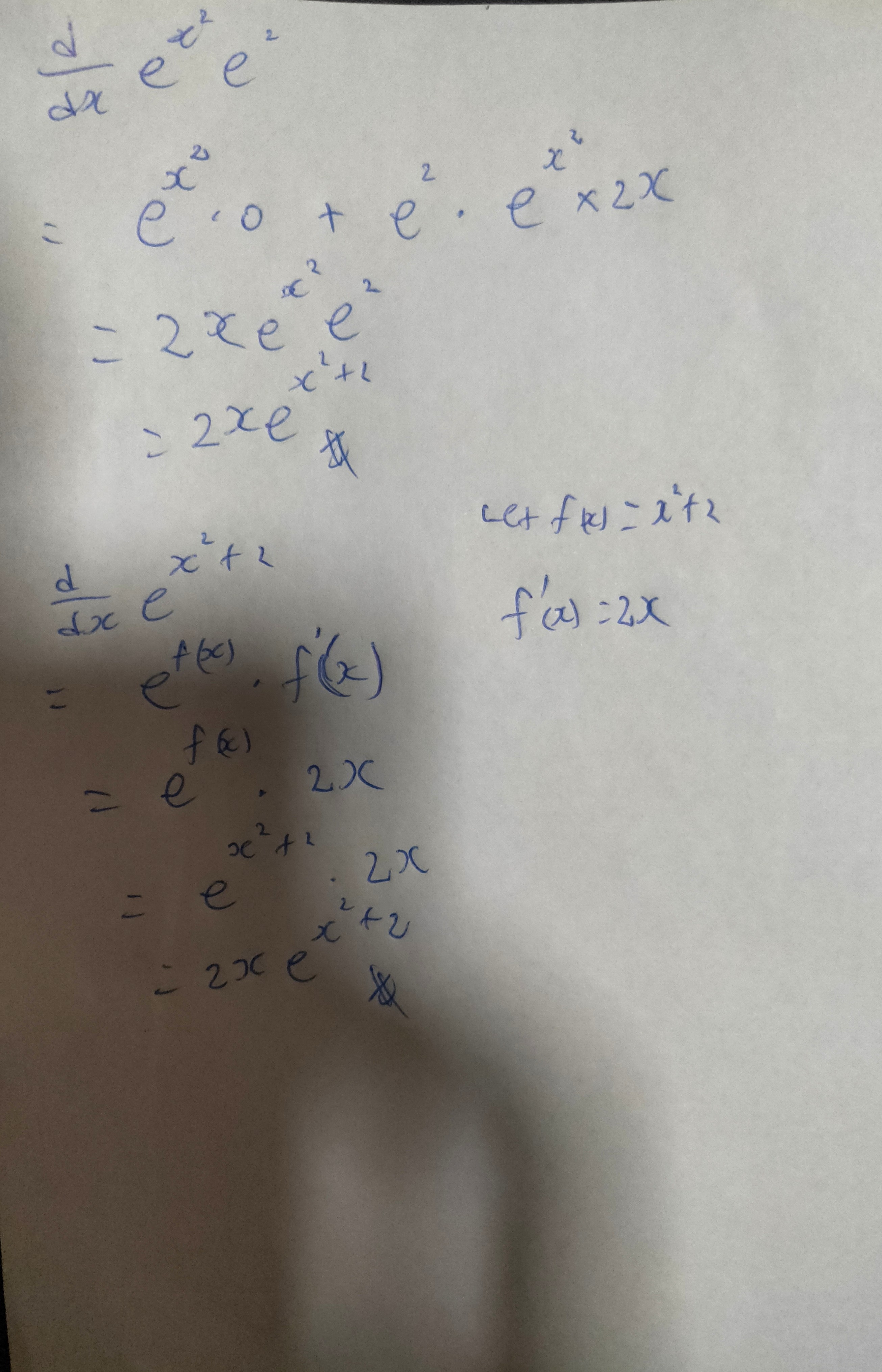Ask Singapore Homework?
Upload a photo of a Singapore homework and someone will email you the solution for free.

Question
junior college 2 | H1 Maths
One Answer Below
Anyone can contribute an answer, even non-tutors.

Need help
= ( d/dx (x² + 2) ) e^(x²+2)
= 2x e^(x² + 2)
let y = e^(x²+2)
Take ln on both sides,
ln y = ln e^(x² + 2)
ln y = x² + 2
Differentiate both sides w.r.t x,
1/y dy/dx = 2x
dy/dx = 2xy = 2xe^(x² + 2)
If I differentiate exponentials shouldnt it be d/dx(e^f(x)) = f’(x)e^f(x)
d/dx f(x) is the same as f'(x)
See 1 Answer





But the first one, why is e^x^2 when differentiated is e^x^2(0)?
d/dx (e^(x²) e²)
= e^(x²) d/dx (e²) + (d/dx e^(x²) ) e²
= e^(x²) (0) + 2xe^(x²) (e²)
= 2xe²e^(x²)
= 2x e^(x²+2)
Remember that differentiating a constant gives 0